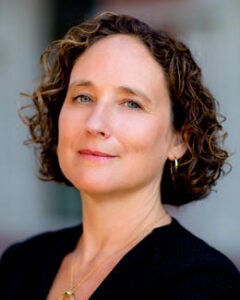Modern Medicine’s Unsung Heroes
We have grown accustomed to headlines trumpeting medical breakthroughs — new drugs, new procedures, new ways to extend life and health. But we hear much less often about the foundational discoveries that made those advances possible. Biologists, chemists, physicists, neuroscientists and other experts invest years uncovering the foundational knowledge on which headline innovations are built. And the majority of these experts work at our nation’s research universities. The vaccines that helped the world mitigate the COVID-19 pandemic, for example, were developed with record-breaking speed only because academic researchers had been exploring the potential for mRNA to trigger a beneficial immune response for decades.

Research universities play as critical a role today as ever in building the foundation for revolutionary discoveries, as breakthroughs increasingly result from the intersection of traditional fields and those that bring new perspectives. At USC Dornsife, our breadth of research and engagement across disciplines provides an ideal environment for incubating new ideas. Our natural science researchers are building the knowledge required to stop the progression of debilitating diseases and to eventually prevent them. At the same time, our social scientists and humanists are studying the environmental, cultural and economic factors that contribute to our health and well-being. We need to bring the full range of expertise to the table to effectively and comprehensively address human health issues.
“Biologists, chemists, physicists, neuroscientists and other experts invest years uncovering the foundational knowledge on which headline innovations are built.”
As much as we share research breakthroughs and exciting discoveries, much of this work will always remain behind the scenes — often published in difficult-to-understand journals or books written for experts. This is part of the natural process, as foundational research is often done without a clear idea of which applications it will someday enable. It is driven by human curiosity and the desire to understand how things work. The headline breakthroughs that result years later in new technologies, less invasive treatments and new approaches taken by hospitals, companies and governments often come under someone else’s name. But the next time you read about an exciting breakthrough, try digging a little deeper. You just might discover that an unsung hero at your alma mater is the one who made it all possible.
Amber D. Miller
Dean, USC Dornsife College of Letters, Arts and Sciences
Anna H. Bing Dean’s Chair
